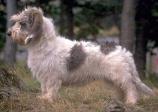
This is a placeholder text
Group text
by Clira13 on 04 June 2015 - 22:06
Can someone help me understand the line breeding section, I.e. The numbers on the far left column and who are Hardiman and Wright?
by GSD Lineage on 04 June 2015 - 23:06
by Blue Frost on 05 June 2015 - 05:06
http://www.pedigreedatabase.com/forum.read?mnr=799487-wrightshardmans-coefficient#804049
Do a forum search for more and Google as well.
by AnaSilva on 16 June 2015 - 19:06
Hi,
Clira13 how I understand you ... I have exactly the same doubts ... and even with all the research and reading still do not understand what the percentages mean...
For example (E REALLY JUST ONE EXAMPLE, Becky is too young and without working trials) crossing Becky with Alfie (dog of a friend), this is the result that appears to me:
| Linebreeding - 5 generations | Inbreeding coefficient | ||
|---|---|---|---|
| Occurrences | Ancestor | Wright's | Hardiman's |
| 4 - 5 | V Yoschy von der Döllenwiese | 00.39% | 02.49% |
| 5 - 5 | V 2*UM CR Gero z Blatenskeho zamku | 00.21% | 03.91% |
http://www.pedigreedatabase.com/breeding.result?father=653684&mother=2357199
What is meant by those values? Wright's? Hardiman's? 4-5? 5-5? It is a positive thing? It's a negative thing? Not even the slightest idea ...
by susie on 16 June 2015 - 19:06
Don´t think too complicate - forget about Wright and Hardiman - it´s about common ancestors, not more, not less.
The parents of a dog are 1
Grandparents 2
Greatgrandparents 3
Greatgreatgrandparents 4
and so on...
4 - 5 Yoschi means he is a greatgreatgrandparent on the father´s side, and he is a greatgreatgreatgrandparent on the mother´s side ( 4. and 5. generation BACK )
2 - 3 or 3 - 2 was allowed until the end of 2014 in Germany ( the same dog as a grandparent on one side and greatgrandparent on the other side ), now in Germany you are not allowed to linebreed/inbreed closer than 3 - 3, by doing this SV tries to widen the genepool.
The more common ancestors, the smaller the diversity in the genes of the offspring. Good - bad? In case the dog in question was linebred (inbred) to a proven healthy producer you will get good results more often than without linebreeding. It´s statistics, but you still need to know what you are doing ( you need to know the ancestors ) - and in the end you need to test, if the puppy REALLY inherited the traits you wanted to get out of this linebreeding.
by AnaSilva on 16 June 2015 - 21:06
Real big thanks susie
Think I got it... So the number part is the "generation" where we find the same dog. And the % parts are just "mat" formulas to calculate the level of linebreeding, right?
In the case of Becky and Alfie it wouldn't be a bad thing right? The 2 dogs in question are good solid dogs (again, this is just to help me realise how this stuff work and to know in the far future if we ever want to breed Becky), the probability of beeing born puppys similar to comon dog's would go up, for good and bad stuff.
I have a friend, Red and RW irish setter breeder, that told me about this but i didn't understand how it translate to a writen chart... And how to read it. Thanks for the help. =)
by Clira13 on 26 June 2015 - 16:06
Thanks, I have a better understanding now.
Contact information Disclaimer Privacy Statement Copyright Information Terms of Service Cookie policy ↑ Back to top




